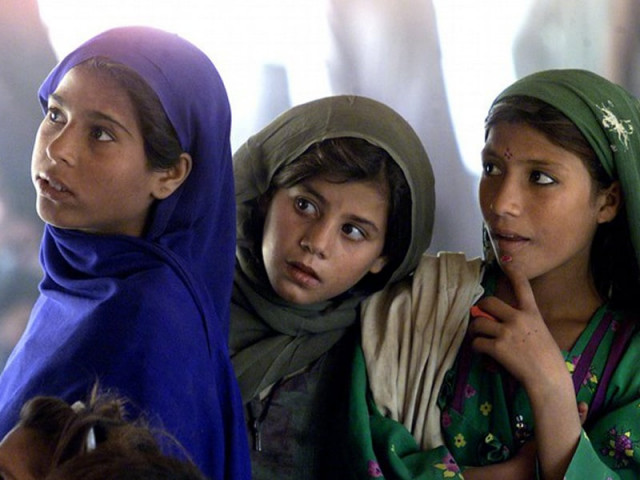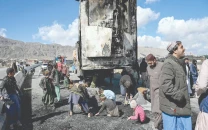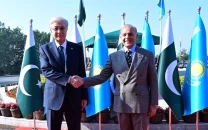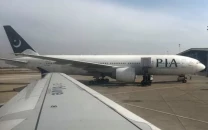Ground-zero of terrorism: The tea stopped flowing, stories heard no more
Frontline city in the war on terror, Peshawar has been reduced to a shadow of its former self.

For residents of Peshawar, it is undoubtedly the worst of times.
Watching the surreal images of collapsing twin towers on their television screens a decade ago, none of them had an inkling of how that episode, halfway across the world, would mark the beginning of a bitter chapter in the city’s 2,500-year-long history.
A week ahead of the 10th anniversary of the attacks on US, authorities have blocked several roads in Peshawar, citing possible terror bid. The city has virtually been under a security gridlock for the past five days.
“Avoid Saddar bazaar till September 17 … it is expected to be targeted in four blasts,” reads a text message making rounds these days. Another message even specifies the registration number of the two explosive-laden vehicles.
Barbed passages, scarred facades
Once a vibrant, open city, Peshawar is a now shadow of its former self. A no-go area, like Baghdad’s Green Zone, has emerged in the center of the city housing important government installations and the cantonment. The situation is no better outside this enclave either, with almost every street cordoned off with barbed wire and blast walls, and facades scarred with shrapnel – stark reminders of every blast that has taken place over the past decade.
“Peshawar is the ground zero of terrorism,” says Dr Adil Zareef, a former general-secretary of the Sarhad Conservation Network.
Living in the city is akin to “living through death and life everyday,” he says, highlighting the historical irony of this bloodshed on the land of the Gandhara civilization which spread non-violence and peace to the world.
Human toll of lawlessness
The lawlessness has exacted a considerable human toll. Beginning in November 2006, when the first suicide attack in the city took place, Peshawar has braced at least 34 suicide attacks in total including three attacks in 2007, four in 2008, 16 in 2009, six in 2010 and three during the ongoing year.
Over 300 people have been killed in these attacks, with scores more injured.
Remote-controlled blasts, improvised explosive devices, grenade attacks, ambushes and kidnapping are in addition to these.
“It is no longer the city of relaxed people and one feels a perpetual dread of bomb attacks,” says a writer, Younas Qiyasi.
Erosion of intangible heritage
The militancy has not only besieged the city, it has also left deep imprints on its cultural facade. The city’s lone theatre, Nishtar Hall, hosts cultural events only rarely, while musicians and singers have left the city for good.
A cinema was bombed in May 2008, while some others were silently razed down to construct commercial plazas.
That’s not the worst of destruction though, says Zareef. “When your intangible heritage is destroyed, buildings and other monuments themselves lose their importance.”
Storytelling no more
British Indian Army officer Henry George Raverty, who visited Peshawar in 1850s, wrote of the Qissakhwani bazaar as the liveliest part of the city, particularly at sunset.
The first stop for caravans from Afghanistan and Central Asia, the bazaar takes its name – qissakhwani, or storytelling – from the tales of war and love that were swapped over endless cups of green tea while travelers unloaded their merchandise here.
Now, the streets are deserted as dusk falls and the only souls lurking are the policemen guarding the entry and exit points of this bazaar.
Pakhtun poet Rehmat Shah Sail, thus laments: “When blood of thy lovers mingles with rain, I attend their funerals with teary eyes.”
Published in The Express Tribune, September 11th, 2011.



















COMMENTS
Comments are moderated and generally will be posted if they are on-topic and not abusive.
For more information, please see our Comments FAQ